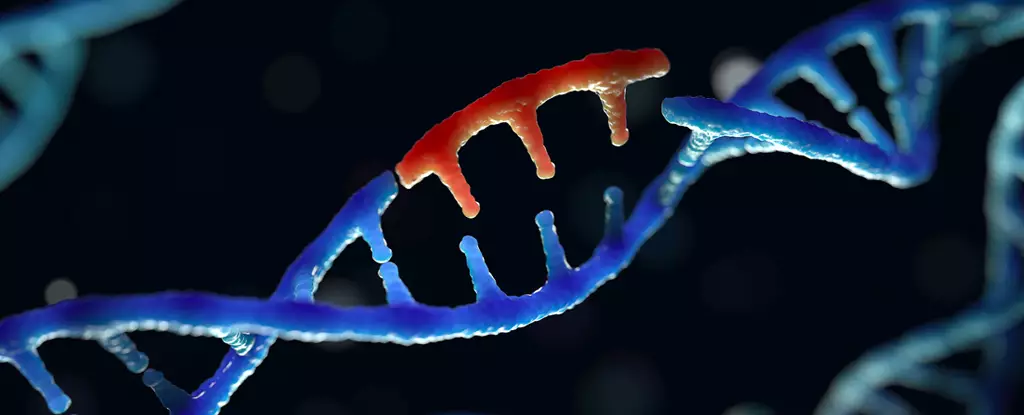Viruses have long been known to leave remnants of themselves in our genomes, which were once thought to be inactive. However, recent research has shown that these ancient viral sequences, known as endogenous retroviruses (ERVs), can be reactivated and play a role in diseases such as cancer. University of Colorado bioinformatician, Atma Ivancevic, led a study that uncovered the connection between these zombie virus parts and cancer development.
While ERVs have been traditionally referred to as ‘junk’ DNA, they are actually responsible for essential evolutionary processes, such as the development of the placenta in mammals. However, researchers like Edward Chuong have discovered that ERVs also have negative implications, especially in cancer. The study conducted on colorectal cancer tissues revealed that an ERV called LTR10 regulates the expression of genes linked to tumor formation. By deactivating LTR10 in tumor cells, researchers were able to suppress cancer growth and increase the effectiveness of treatments in mice.
Epigenetic Control by Zombie Virus Parts
According to Ivancevic and the research team, LTR10 acts as an epigenetic switch that controls the expression of cancer-related genes. This suggests that cancers actively utilize these ancient viral sequences to alter gene expression patterns within tumors. In fact, a single family of retroviruses was found to regulate as many as 70 cancer-associated genes. While the study provided insights into the genes regulated by LTR10, further research using patient-derived organoids is needed to establish the direct connections between these genes and cancer progression.
As scientists delve deeper into the role of zombie virus parts in cancer and other diseases, it is becoming increasingly clear that these ancient viral sequences have significant impacts on our health. The researchers speculate that as we age, more of these dormant viral sequences may be activated, leading to a range of health issues later in life. By continuing to investigate the mechanisms by which ERVs influence gene expression and disease development, researchers hope to uncover new therapeutic targets and interventions for complex conditions like cancer.
The discovery of the involvement of zombie virus parts in cancer sheds light on the intricate relationship between our genetic makeup and disease. While these ancient viral sequences have long been overlooked, they play a crucial role in shaping our biological processes. By unraveling the mysteries surrounding ERVs and their impact on cancer, we may pave the way for innovative treatments and strategies to combat this deadly disease.


Leave a Reply